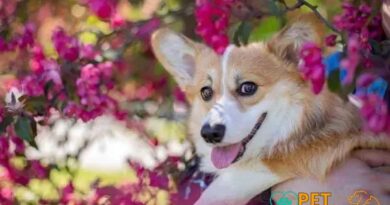O que é crossover dogs
What Are Crossover Dogs?
Crossover dogs refer to mixed-breed canines that result from the intentional breeding of two distinct dog breeds. This practice aims to combine desirable traits from both parent breeds, creating a unique dog that often exhibits a blend of physical characteristics and temperamental qualities. Crossover dogs have gained popularity due to their diverse appearances and personalities, making them appealing to a wide range of dog lovers.
The Appeal of Crossover Dogs
One of the main attractions of crossover dogs is their individuality. Unlike purebred dogs, which adhere to specific breed standards, crossover dogs can vary significantly in size, coat type, and color. This variability allows potential dog owners to find a pet that matches their personal preferences and lifestyle. Additionally, many people believe that mixed-breed dogs tend to be healthier than their purebred counterparts, as they benefit from a broader gene pool.
Common Crossover Dog Breeds
Some popular crossover dog breeds include the Labradoodle (Labrador Retriever and Poodle), Goldendoodle (Golden Retriever and Poodle), and the Puggle (Pug and Beagle). These hybrids often inherit the best traits from both parent breeds, such as intelligence, friendliness, and low-shedding coats. Each crossover dog breed has its unique characteristics, making it essential for prospective owners to research and understand the specific traits of the breeds involved.
Health Considerations for Crossover Dogs
While crossover dogs may enjoy hybrid vigor, which can lead to improved health, they are not immune to genetic health issues. It is crucial for potential owners to be aware of the common health problems associated with the parent breeds. Regular veterinary check-ups, a balanced diet, and proper exercise can help mitigate health risks and ensure a long, happy life for crossover dogs.
Training and Socialization
Training and socialization are vital for crossover dogs, just as they are for any dog breed. Early exposure to various environments, people, and other animals can help develop a well-rounded and confident dog. Positive reinforcement techniques work well with crossover dogs, as they often inherit a desire to please from their parent breeds. Consistent training can lead to a loyal and obedient companion.
Grooming Needs of Crossover Dogs
The grooming needs of crossover dogs can vary widely depending on the coat types inherited from their parent breeds. Some may require regular brushing to prevent matting, while others may have low-shedding coats that need less maintenance. Understanding the grooming requirements of the specific crossover breed is essential for keeping your dog healthy and comfortable.
Choosing a Crossover Dog
When selecting a crossover dog, it is essential to consider factors such as size, energy level, and temperament. Potential owners should assess their lifestyle and living situation to ensure they choose a breed that fits well. Visiting local shelters or rescue organizations can also provide opportunities to meet and adopt crossover dogs in need of loving homes.
Adopting vs. Buying Crossover Dogs
Adopting a crossover dog from a shelter or rescue organization can be a rewarding experience. Many crossover dogs are in need of homes, and adopting can save a life while providing a loving companion. On the other hand, purchasing from a reputable breeder can ensure that you receive a healthy puppy with a known lineage. Regardless of the route taken, responsible ownership is crucial.
The Future of Crossover Dogs
As the popularity of crossover dogs continues to rise, breeders and enthusiasts are likely to develop new hybrid breeds. This trend may lead to even more unique combinations, offering dog lovers a wider variety of choices. However, it is essential to prioritize ethical breeding practices to ensure the health and well-being of these beloved pets.



